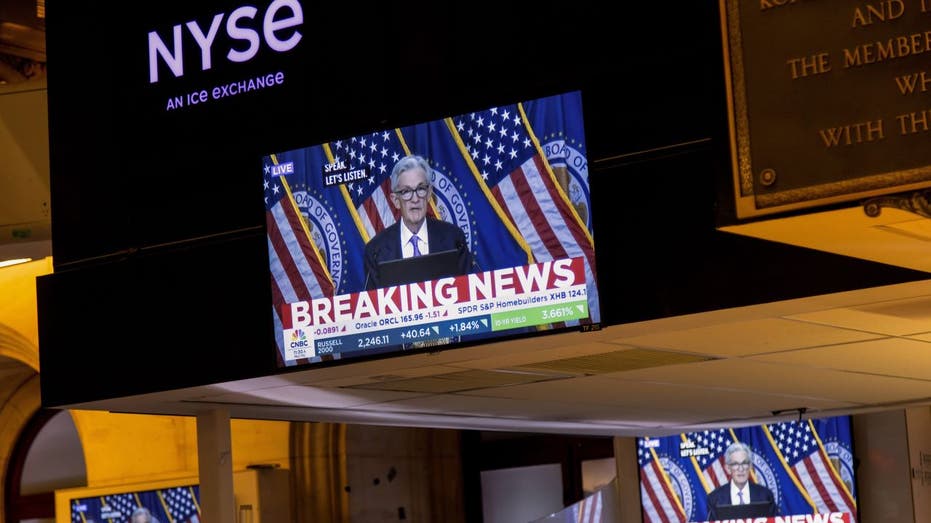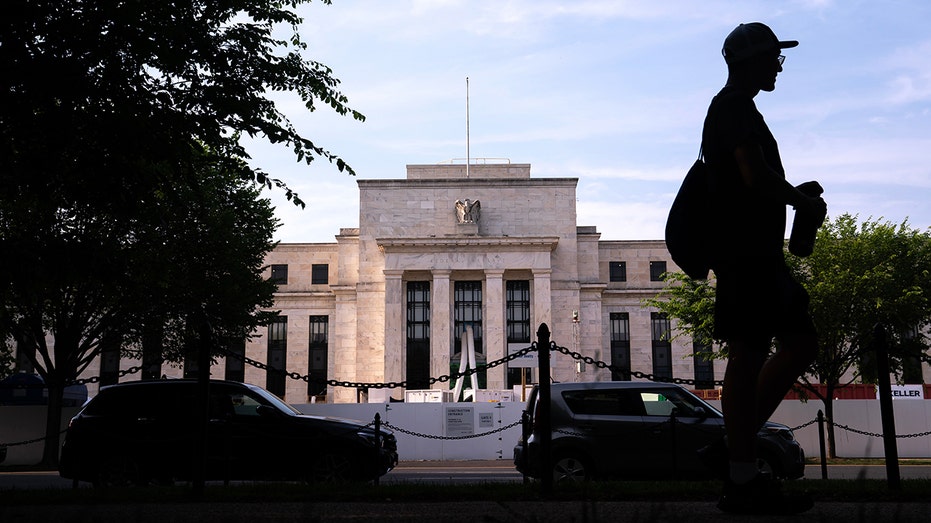The Fed cut rates by half-point: What to know
The Fed lowered interest rates by 50 basis points in announcing the first cut since March 2020
Fed Chair Powell caved to the traders and everyone putting pressure on him: Kenny Polcari
The Claman Countdown panelists Gabriela Santos and Kenny Polcari analyze the impact of the Federal Reserve rate cut move.
The Federal Reserve on Wednesday cut interest rates for the first time since March 2020, as the central bank lowered the benchmark federal funds rate by 50 basis points amid progress in the fight against inflation.
The cut was larger than the 25 basis point cut forecast by LSEG economists, though interest rate traders saw a 64% probability of a 50 basis point cut as of Tuesday, according to the CME FedWatch tool. With the 50 point cut, the Fed lowered the target range for the federal funds rate to 4.75% to 5% – down from 5.25% to 5.5%.
"Our economy is strong overall and has made significant progress toward our goals over the past two years," Fed Chair Jerome Powell said in a press conference after the announcement.
"This decision reflects our growing confidence that with an appropriate recalibration of our policy stance, strength in the labor market can be maintained in a context of moderate growth and inflation moving sustainably down to 2%."
FEDERAL RESERVE CUTS INTEREST RATES BY HALF-POINT; FIRST RATE REDUCTION IN FOUR YEARS

Federal Reserve Chair Jerome Powell cited progress in slowing inflation as factoring in to the Fed's rate cut. (Photographer: Michael Nagle/Bloomberg via Getty Images / Getty Images)
Inflation slowed to 2.5% in August based on the Labor Department's consumer price index (CPI), which is above the Fed's 2% target but showed a continued easing of inflationary pressures and was down nearly half a point from the 2.9% headline reading in July.
The Fed's policymaking arm estimated in its summary of economic projections that the personal consumption expenditures (PCE) index, the central bank's preferred inflation gauge, will slow to 2.3% at the end of 2024 before declining further to 2.1% in 2025 and 2% in 2026 and 2027.
Policymakers expect the unemployment rate, which dipped to 4.2% in August after rising to 4.3% in July, to rise slightly and end this year at 4.4%. The projections see unemployment remaining at 4.4% in 2025, before declining to 4.3% in 2026 and 4.2% in 2027.
FED INTEREST RATE CUTS WON'T HELP YOUR CREDIT CARD DEBT

Fed policymakers see additional rate cuts coming in the months ahead. (Photographer: Nathan Howard/Bloomberg / Getty Images)
"I don't see anything in the economy right now that suggests that the likelihood… of a downturn is elevated," Powell said in response to a question about whether the economy is vulnerable to recession. "I don't see that. You see growth at a solid rate, you see inflation coming down, and you see a labor market that's still at very solid levels."
Stocks rose in the immediate aftermath of the Fed's announcement, with the Dow Jones Industrial Average and the S&P 500 each hitting record highs after the announcement before slipping ahead of the closing bell. The Dow Jones closed down 0.25% while the S&P 500 ended down 0.29%.
| Ticker | Security | Last | Change | Change % |
|---|---|---|---|---|
| I:DJI | DOW JONES AVERAGES | 50115.67 | +1,206.95 | +2.47% |
| SP500 | S&P 500 | 6932.3 | +133.90 | +1.97% |
| I:COMP | NASDAQ COMPOSITE INDEX | 23031.213218 | +490.63 | +2.18% |
The interest rate reduction may have a modest impact on consumer borrowing costs for things like mortgages and auto loans because those rates offered by lenders are influenced by the Fed's benchmark. Following the Fed's announcement, both Bank of America and Wells Fargo announced that they were lowering their prime lending rates by 50 basis points to 8% effective Thursday.
'FED IS IN A TIGHT SPOT': ECONOMISTS WEIGH IN ON HOW RATE CUTS COULD IMPACT ELECTION

The Dow Jones and S&P 500 closed down slightly on Wednesday after briefly hitting all-time highs following the Fed's announcement. (Spencer Platt/Getty Images / Getty Images)
Borrowers are likely to see a bigger impact if the Fed continues to cut interest rates in the coming months, as policymakers expect to deliver additional cuts if the economic data calls for them.
The Fed's economic projections signaled a half-point reduction in interest rates in the next few months, ending the year at a range of 4.4% to 4.6% based on the central tendency of policymakers' estimates.
From there, Fed policymakers projected the federal funds rate would decline further by the end of 2025 at a range of 3.1% to 3.6%, and to between 2.6% and 3.6% at the conclusion of 2026.
GET FOX BUSINESS ON THE GO BY CLICKING HERE
There are two more policy meetings on the Fed's schedule this year – Nov. 6-7, just after Election Day on Nov. 5; and Dec. 17-18, when the Fed will release its next summary of economic projections.




















